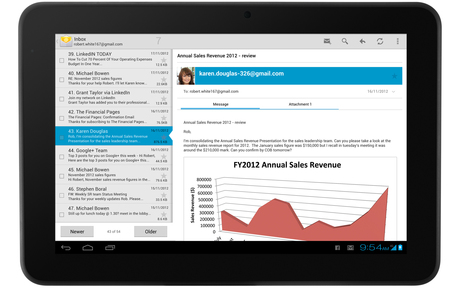Are tablets a long-term solution?

Tablets have completely changed the nature of information access for users right across the enterprise. But are they a long-term solution or a flash in the pan?
Five years ago, tablet computers were around but their use was largely limited to vertical applications. They were large, heavy and had poor software and mediocre battery life. Notebook computers were popular but they were treated as mobile desktops.
Netbooks hit the market in late 2007. Although their primary focus was education, they quickly hit the mainstream. But their small screens, pokey keyboards and slow processors meant that they were never really embraced by businesses. However, their sales indicated that there was a desire for a superior mobile computing solution.
When the iPad was released in 2010, it all but destroyed the netbook market. Today, Apple and Android tablets own the market - although Microsoft is trying to pull market share back with Windows 8 and its Surface tablet. But will tablet computers be around in five years’ time?
In a recent interview, BlackBerry’s Chief Executive Officer, Thorsten Heins, said, “In five years I don’t think there’ll be a reason to have a tablet anymore. Maybe a big screen in your workspace, but not a tablet as such. Tablets themselves are not a good business model.”
In contrast, recent analysis by Gartner suggests that tablet sales will quadruple from last year’s sales of around 116 million units to almost 470 million units by 2017. What’s going on? Who’s got it right? Gartner or Heins?
The other data points worth considering are that PC shipments are falling with the first quarter of 2013 representing the fourth consecutive quarter of sales falls, according to Gartner. And BlackBerry’s PlayBook has failed to garner much market share despite still being a popular smartphone platform, according to research recently presented by IDC.
Our guess is that with Android tablets swallowing up the less expensive commodity market and the iPad generally considered to be supplying the high end of the market, there’s no place for another tablet platform unless it offers something substantially different to the rest of the market. Heins probably can’t see how BlackBerry can do that.
Gartner’s data offers two interesting dimensions. The drop in PC shipments is more than covered by the estimated sales in tablets. In other words, the forecasts suggest that while we’re moving away from traditional computing form factors, we’re using more tablet devices.
This has some important implications for enterprise IT managers.
- Infrastructure needs to be increasingly focused on wireless and transient connections. That means more wireless access points and improved management tools for your wireless.
- Applications will need to be rebuilt, over time. In the past, applications were built to run in the office with constant connections. Systems will need to be redeveloped to accommodate intermittent connections.
- The number of platforms IT managers will need to support is likely to broaden. Although it’s easy to think of just iOS and Android, there are several versions of each and Android is further splintered as many OEMs add their own customisations.
- Security changes completely. The traditional approach of firewalls and security software doesn’t work when the devices aren’t confined to the network. Security needs to be handled at the application and data level.
Despite Heins’ comments, IT managers need to be ready for more, not fewer, tablets.
IoT demands alternatives as 3G sunset looms
The impending 3G shutdown is a daunting prospect for organisations across ANZ that rely on...
Broadband measurement shows online gaming stacks up
The ACCC's latest Measuring Broadband Australia report has found that consumer connections to...
BlackBerry stopping one cyber attack per minute
A new report from BlackBerry's Threat Research and Intelligence team highlights the...




